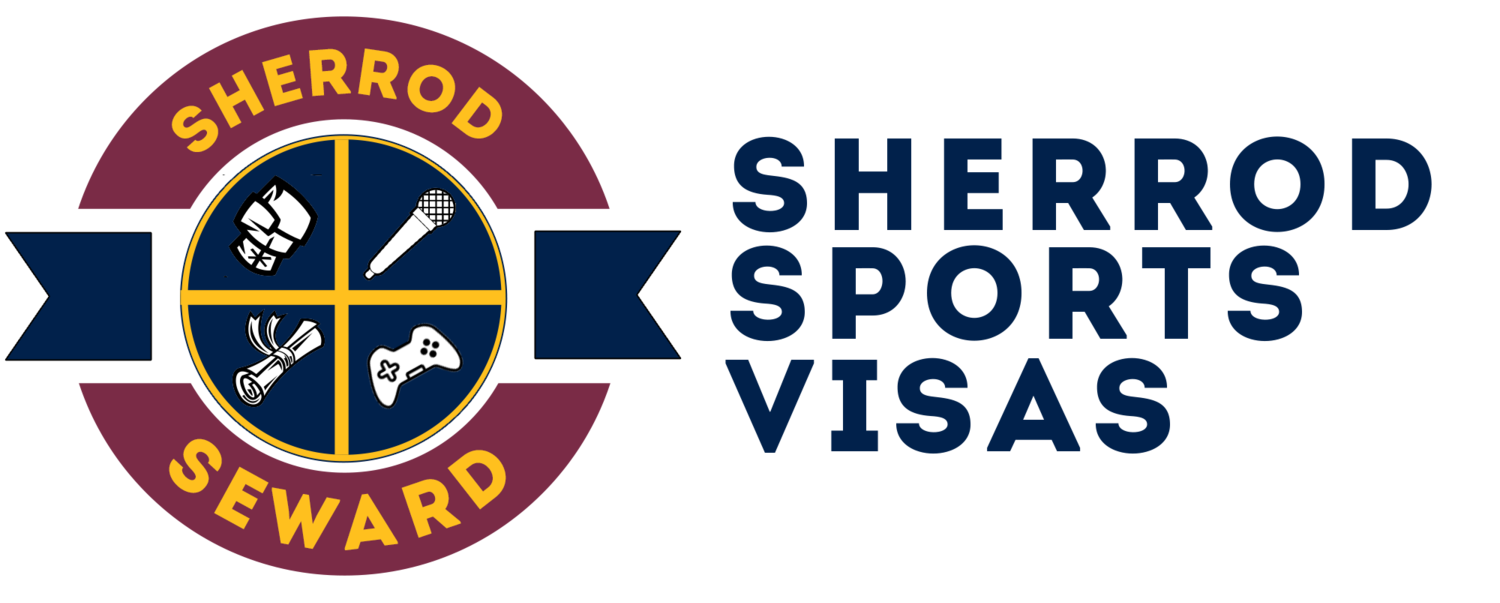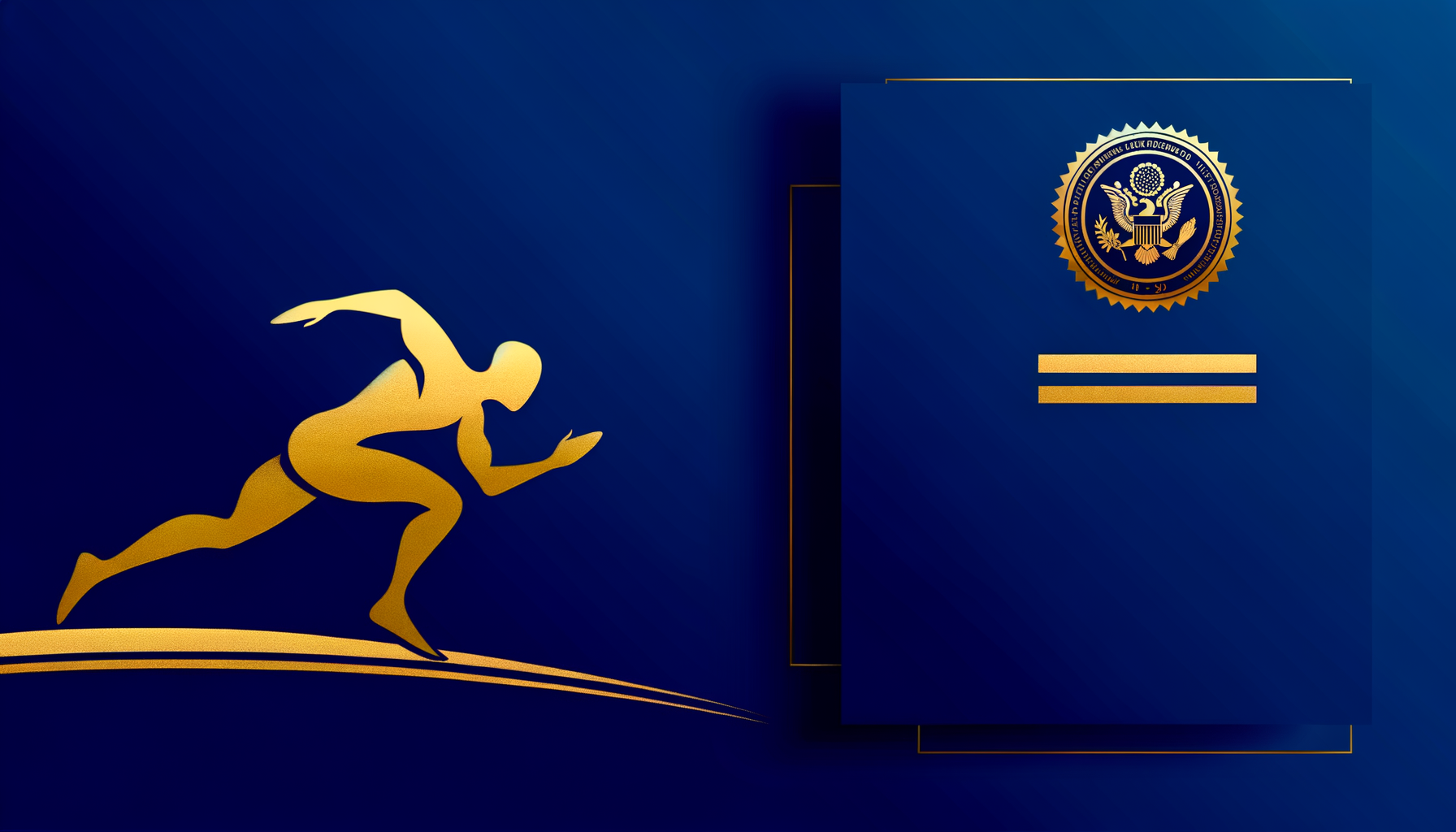Maya Bruney's O-1 Visa Victory: From Olympic Sprint Track to American Success
Olympic sprinter Maya Bruney's O-1 visa approval demonstrates how strategic legal representation can transform career-threatening immigration challenges into opportunities for international athletes seeking to compete in the United States.
The Challenge: When Olympic Achievement Meets Immigration Complexity
Maya Bruney faced a situation familiar to many elite international athletes. Despite her Olympic-level achievements on the track, her initial visa application encountered significant obstacles that threatened to derail her American competition plans.
The complexity arose from the nuanced requirements of the O-1 visa category for athletes with extraordinary ability. While Maya's athletic achievements were undeniable, presenting them in a format that satisfied USCIS adjudicators required specialized expertise in sports immigration law.
"Olympic participation alone doesn't guarantee visa approval," explains Attorney Sherrod Seward, Managing Member of Sherrod Sports Visas. "The key is demonstrating sustained extraordinary ability through comprehensive documentation that tells the complete story of an athlete's career."
Understanding the O-1 Visa for Olympic Athletes
The O-1 visa serves athletes who demonstrate extraordinary ability in their field through sustained national or international acclaim. For Olympic athletes like Maya Bruney, this visa category offers several advantages:
Key Benefits for Elite Athletes
Dual Intent: Unlike P-1 visas, O-1 visas allow athletes to pursue permanent residence simultaneously
Extended Validity: Initial grants up to three years with unlimited extensions
Broader Activities: Permits training, competition, and related activities
Family Inclusion: Spouses and children can accompany on O-3 visas
Documentation Requirements
Successful O-1 petitions for Olympic athletes must establish extraordinary ability through evidence such as:
Olympic participation and results
National team selection
International competition achievements
Media coverage and recognition
Expert testimonials from coaches and officials
Comparative performance data
The Sherrod Sports Visas Strategy
When Maya Bruney's case came to Sherrod Sports Visas, the legal team implemented a comprehensive approach that addressed the specific challenges facing Olympic sprinters seeking U.S. work authorization.
Comprehensive Case Development
The strategy began with a detailed analysis of Maya's athletic career, identifying key achievements that demonstrated her extraordinary ability in track and field. This included:
Competition History Analysis: Documenting Maya's progression from national competitions to Olympic participation, showing sustained excellence over time.
International Recognition: Gathering evidence of media coverage, rankings, and recognition from international athletics organizations.
Expert Testimonials: Securing detailed letters from coaches, officials, and industry experts who could speak to Maya's extraordinary abilities and contributions to the sport.
Addressing Previous Challenges
The legal team carefully analyzed any previous application issues, ensuring that the new petition addressed concerns while presenting Maya's case in the strongest possible light.
"Every athlete's story is unique," notes Attorney Sherrod Seward. "Our role is to present that story in a way that clearly demonstrates extraordinary ability while addressing any previous concerns from immigration officials."
The Documentation Framework
Successful O-1 petitions require meticulous documentation that goes beyond basic athletic achievements. For Maya Bruney's case, this included:
Olympic and International Competition Evidence
Official Olympic participation records
Competition results from international meets
National team selection documentation
World Athletics (formerly IAAF) rankings and statistics
Media and Recognition Documentation
Print and digital media coverage
Social media recognition and following
Sponsorship agreements and endorsements
Awards and honors from athletics organizations
Expert Opinion Letters
Detailed testimonials from:
Olympic coaches with international experience
Track and field officials and administrators
Sports journalists and commentators
Former Olympic athletes and industry leaders
Overcoming Common Obstacles
Olympic athletes often face specific challenges in O-1 visa applications that require experienced legal guidance:
Performance vs. Results
Some adjudicators focus solely on medal results rather than understanding the extraordinary nature of Olympic qualification itself. Maya's case required education about the selection process and competitive standards in international sprinting.
Comparative Evidence
Demonstrating extraordinary ability requires showing how an athlete compares to peers. This involved detailed analysis of Maya's times, rankings, and achievements relative to other international sprinters.
Future Activity Planning
O-1 visas require specific itineraries of planned activities. The petition outlined Maya's training plans, competition schedule, and related activities in the United States.
The Approval and Its Impact
Maya Bruney's O-1 visa approval opened new opportunities for her athletic career while setting important precedents for other Olympic sprinters seeking similar immigration benefits.
Career Transformation
With her O-1 visa approved, Maya gained:
Access to world-class training facilities
Opportunities to compete in prestigious American track meets
Ability to work with top coaches and training partners
Platform for sponsorship and endorsement opportunities
Broader Implications
The success of Maya's case demonstrates important principles for other Olympic athletes:
Documentation Standards: The level of evidence required for O-1 approval continues to evolve, requiring comprehensive preparation.
Legal Expertise Matters: Specialized immigration attorneys understand the nuances of presenting athletic achievements to USCIS adjudicators.
Timing Considerations: Strategic timing of applications can significantly impact success rates and processing times.
Lessons for Other Olympic Athletes
Maya Bruney's success offers valuable insights for other Olympic athletes considering O-1 visa applications:
Start Early
O-1 petitions require extensive documentation that takes time to gather and organize. Athletes should begin the process well in advance of their planned activities.
Comprehensive Documentation
Success requires more than just competition results. Athletes need media coverage, expert testimonials, and detailed evidence of their extraordinary abilities.
Professional Legal Representation
The complexity of O-1 requirements makes experienced legal counsel essential for maximizing approval chances.
Current Trends in Olympic Athlete Visas
Recent developments in sports immigration affect how Olympic athletes approach visa applications:
Enhanced Documentation Standards
USCIS continues to require increasingly detailed evidence of extraordinary ability, making comprehensive case preparation more critical than ever.
Processing Considerations
Processing times and approval rates vary based on service centers and current caseloads, requiring strategic planning for application timing.
Policy Interpretations
Evolving interpretations of "extraordinary ability" standards require attorneys to stay current with adjudication trends and successful case strategies.
The Role of Specialized Immigration Counsel
Maya Bruney's case highlights the critical importance of working with immigration attorneys who understand the unique challenges facing international athletes.
Sports-Specific Expertise
Attorney Sherrod Seward and the team at Sherrod Sports Visas bring deep understanding of:
Athletic achievement standards across different sports
USCIS adjudication patterns for athlete cases
Documentation strategies that resonate with immigration officials
Industry connections for gathering supporting evidence
Comprehensive Case Strategy
Successful representation goes beyond form preparation to include:
Strategic case development and positioning
Evidence gathering and organization
Expert witness coordination
Response to requests for additional evidence
Appeals and motion practice when necessary
Looking Forward: Olympic Athlete Immigration
As international sports continue to evolve, immigration law must adapt to serve the needs of elite athletes seeking opportunities in the United States.
Emerging Considerations
Technology Integration: Digital platforms and social media presence increasingly factor into extraordinary ability determinations.
Global Competition: Rising standards in international athletics require more sophisticated documentation of extraordinary ability.
Career Longevity: Athletes must consider long-term immigration strategies that support career transitions and family planning.
Practical Steps for Olympic Athletes
Based on Maya Bruney's successful case, Olympic athletes considering O-1 visa applications should:
Immediate Actions
Document Everything: Maintain comprehensive records of all competitions, achievements, and recognition
Build Media Presence: Actively seek media coverage and maintain professional social media profiles
Cultivate Professional Relationships: Develop relationships with coaches, officials, and industry leaders who can provide testimonials
Long-Term Planning
Career Documentation: Create systematic documentation of career progression and achievements
Legal Consultation: Engage experienced sports immigration counsel early in the planning process
Strategic Timing: Plan application timing around competition schedules and career objectives
Conclusion: Excellence in Athletic Achievement and Legal Representation
Maya Bruney's O-1 visa success story demonstrates that Olympic-level athletic achievement, combined with strategic legal representation, can overcome even complex immigration challenges.
The case illustrates key principles that benefit all international athletes:
Extraordinary ability requires comprehensive documentation beyond basic competition results
Specialized legal expertise significantly impacts application success
Strategic case development addresses both current needs and future opportunities
Professional representation provides the best foundation for career advancement
For Olympic athletes and other elite international competitors seeking opportunities in the United States, Maya's journey from visa challenges to approval offers both inspiration and practical guidance.
Ready to discuss your O-1 visa options? Contact Sherrod Sports Visas today for a comprehensive evaluation of your case. Our experienced team understands the unique challenges facing Olympic athletes and has the expertise to navigate complex immigration requirements successfully.
Contact our team to schedule your consultation and take the first step toward securing your athletic future in the United States.


